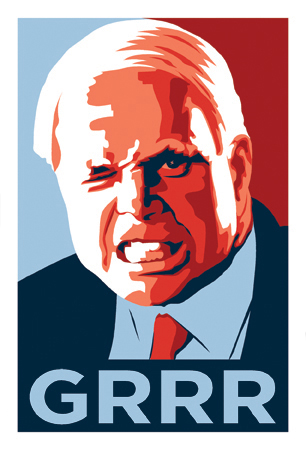WASHINGTON -- What began as Rand Paul’s one-man crusade to press the Obama administration for clarity regarding its prosecution of U.S. citizens suspected of terrorist ties became a bipartisan spectacle in the Senate chamber Wednesday, one that delayed a vote on the president’s choice for a new CIA director.
Senate leaders had said they could hold a vote on John Brennan’s nomination as soon as Wednesday evening, barely 24 hours after a lopsided vote in favor of the choice in the Intelligence Committee. But shortly before noon Paul, a Kentucky Republican, began a rare “talking filibuster” and vowed to continue speaking until the White House answered whether it would rule out targeting killings of American citizens within the United States.
“I have allowed the president to pick his appointees, but I will not sit quietly and let him shred the Constitution,” he said, noting he voted for Obama’s nominees to lead the State and Defense Departments. “I cannot sit at my desk quietly and let the president say he will kill Americans on American soil who are not actively attacking the country.”
Five hours into the discourse, a frustrated Senate Majority Leader Harry Reid sought to interrupt Paul and proceed to a vote after a final hour’s worth of debate. Paul rejected the request.
"We're through for the night,” Reid said in response, before Paul resumed his filibuster.
Paul had spoken for three hours uninterrupted before otherRepublicans came to the floor to give him a brief respite by asking him to yield for questions. It allowed Paul to remain in control of the debate, though he remained standing, at times sipping water from a glass on his front-row desk furthest right in the Senate chamber.
Senators Mike Lee of Utah, Jerry Moran of Kansas and Marco Rubio of Florida joined the discussion. Another, Ted Cruz of Texas, compared Paul to the heroes of the Battle of the Alamo, which ended on this day 177 years ago.
A Democrat, Ron Wyden of Oregon, also came to the floor to say he supported Paul’s effort for greater oversight of the administration’s efforts. He had voted to support Brennan’s nomination in committee the day before.
“He will be a principled and effective leader that the CIA needs and deserves. And I think Sen. Paul and I agree that this nomination also provides a very important opportunity for the United States Senate to consider the government’s rules and policies on the targeting killings of Americans,” Wyden said.
“What it comes down to is, every American has the right to know when their government believes that it is allowed to kill them.”
Rubio, too, had voted for Brennan a day before, and maintained after leaving the Senate floor Wednesday that he continued to support him.
“The issue’s not Brennan. The issue is whether members of the Senate have the right to ask relevant, significant and important public policy questions and get a direct answer from this administration,” said Rubio, a potential rival of Paul’s in a 2016 Republican presidential nomination fight. “This is not in defense of Sen. Paul, this is in defense of the institution and of its right to do its job by having relevant information given to them.”
Under Rule XIX of the Senate, senators who have been recognized to speak may do so for as long as they wish and cannot be forced to cede the floor or even be interrupted without their consent, according to the Congressional Research Service.
That was traditionally how a filibuster was conducted, but that notion has changed. Instead, a filibuster now describes any procedural move by a Senate minority to block or delay consideration of legislation or appointments, and a senator is not required to take the floor to speak.
Such was the case earlier Wednesday when 40 Republican senators voted to block one of President Obama’s appointees to the U.S. Court of Appeals for the District of Columbia.
The last time a talking filibuster occurred was in December 2010, when Sen. Bernie Sanders (I-Vt.) spoke for all but 80 minutes in a nearly nine-hour period to oppose a compromise to extend the George W. Bush-era tax rates.
After more than five and a half hours, Paul confessed that he was losing steam.
“I can’t ultimately stop the nomination but I can bring attention to this [cause],” he said.
Follow Politics Now on Twitter and Facebook
Twitter: @mikememoli









You need to be a member of REAL CONSERVATIVES to add comments!
Join REAL CONSERVATIVES